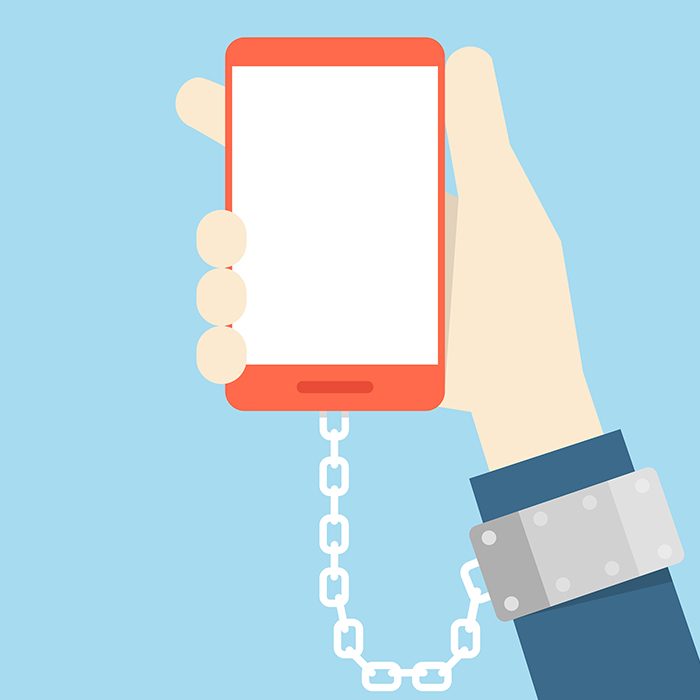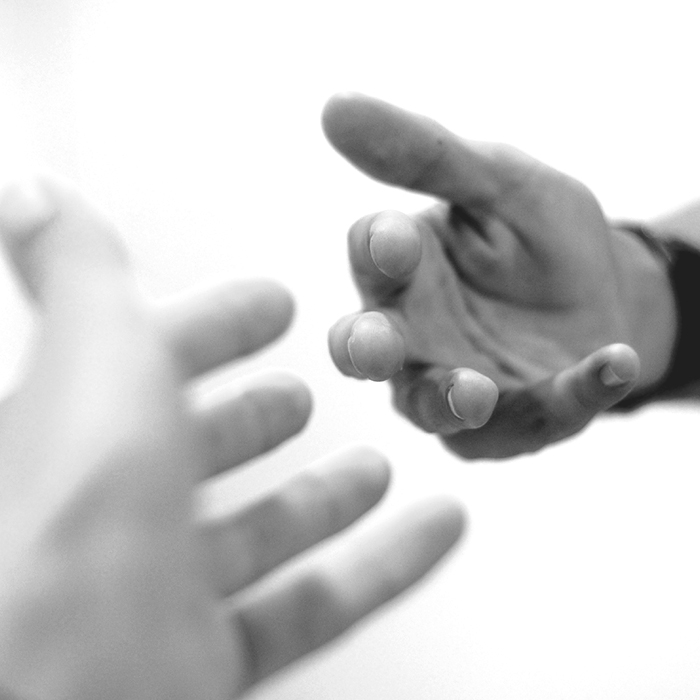Did you know that smartphone addiction is a disease? It may soon be a fully certified and recognized medical condition. It’s called “nomophobia” (short for no-mobile-phone phobia), and psychologists say that it’s affecting more and more young people.
Symptoms include feelings of panic or desperation when separated from your smartphone, not being able to focus on conversations or work, and constantly checking phones for notifications. Some people may think their phone is ringing when it’s not, a condition named cellphone vibration syndrome that researchers say could be a sign of a more serious technology addiction.
According to Dr. David Greenfield, an Assistant Clinical Professor of Psychiatry at the University of Connecticut School of Medicine, an attachment to your smartphone is similar to other addictions in that it involves a dysregulation of dopamine. Dopamine is a neurotransmitter that regulates the brain’s reward center, meaning that it motivates people to do things they think they will be rewarded for doing.
Greenfield founded the Center for Internet and Technology Addiction to help the always-connected find a better balance in their lives.
“Every time you get a notification from your phone, there’s a little elevation in dopamine that says you might have something that’s compelling, whether that’s a text message from someone you like, an email, or anything,” Greenfield said to Business Insider. “The thing is you don’t know what it’s going to be or when you’re going to get it, and that’s what compels the brain to keep checking. It’s like the world’s smallest slot machine.”
In a national survey conducted by Harris Interactive in the fall of 2013, 63% of respondents said they check their phone for messages or calls once an hour, while 9% said they checked their phone every five minutes.
An additional 63% said they would be upset if they left home without their smartphone. Many would return home to retrieve it, even if they’re out on just a quick trip to the store.
And, according to a survey by the Huffington Post and YouGov, 64% of people between the ages 18 and 29 have fallen asleep with their tablet or cell phone in bed with them.
Still, you may not have heard of nomophobia because people who suffer from it may not even realize they have a problem.
“As with any addiction, denial is the number one hallmark. There aren’t a lot of people who come out and say they have a problem, and the link with the anxiety they feel is much more tenuous,” psychiatrist Dale Archer said to Business Insider. “Plus, the symptoms are not that bad with the majority of people. Like any addiction, I suspect it will be like that — 1% of the population with a full-blown problem that affects their lives.”
Some psychologists have proposed adding nomophobia to the Diagnostic and Statistical Manual of Mental Disorders (DSM), which is considered to be the ultimate authority on mental health.
“It is undeniable that technology through new social media, social network sites, social informatics, and social software…enables us to perform our job more quickly and with efficiency,” Nicola Luigi Bragazzi and Giovanni Del Puente of the University of Genoa wrote in their DSM proposal. “On the other hand, mobile devices can have a dangerous impact on human health. Further research is needed, above all academic and scholarly studies, to investigate more in depth the psychological aspects of nomophobia and to provide a standardized and operational definition of it.”
Greenfield says that nomophobia is just a small subset of a larger problem with Internet addiction.
“A smartphone is just a more readily available access point to the Internet. My research has shown that the ease of access, availability, and portability makes it twice as addictive as other modalities,” he said. “Convenience is the mother of addiction — the quicker you can get a hit back on the technology, the faster the intoxication.”
Plus, constantly receiving tons of likes on your tweets or Instagram photos creates this feeling of self-importance that just isn’t real.
“That feeling you’re going to miss something if you’re not constantly checking is an illusion — most parts of our lives are not relevant to our smartphones,” Greenfield said. “What happens on our devices is not reflective of what happens in real life.”
Digital detox programs, like Camp Grounded in northern California, ban electronic devices in the hopes that a true unplugging will help cure technology addiction. Guests at Camp Grounded participate in activities like archery, sing-a-longs, and meditative breathing workshops, all without the constant influence of a smartphone or other device.
In China, Internet-hooked teens are often sent to boot camps where they undergo intense military-style training designed to break their addiction.
But both Greenfield and Archer say that curing nomophobia doesn’t always require such extreme measures.
Greenfield suggests downloading an app, like Menthal, that records just how much time you’re spending on your phone each day. A huge amount of people lose track of time and space when they’re on their devices, which affects the brain in a way similar to the way a drug would.
And Archer says it’s important to create guidelines for when it’s appropriate to use your phone — for making a phone call, for instance — and when it’s not.
“Stop texting while you’re driving. Don’t take it into the bathroom with you. Have a rule not to use your phone when you’re with your friends. If you’re on a date, make a rule that you’ll both check your phone for a maximum of 5 minutes every 90 minutes,” Archer said. “It’s all about setting simple rules that you can follow.”
Source: businessinsider.com










